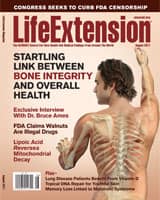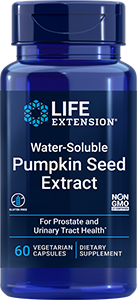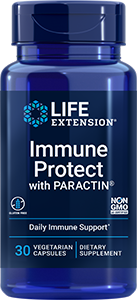 | August 12, 2011 | Meta-analysis adds evidence to association of omega-3 supplementation with homocysteine reduction | | The outcome of a meta-analysis of 11 trials published in the September, 2011 issue of Nutrition uncovered a significant reduction in plasma homocysteine in association with greater intake of omega-3 polyunsaturated fatty acids. Omega-3 fatty acids occur in high amounts in fish and fish oil, and are relatively deficient in Western diets. Researchers in China pooled the results from 702 participants in randomized trials that compared the effects of supplementation with omega-3 fatty acids to a placebo. Treatment periods ranged from 6 to 48 weeks, and doses varied between 0.2 and 6 grams per day. The analysis confirmed a reduction in plasma homocysteine levels in association with omega-3 fatty acid supplementation, with an average decrease of 1.59 micromoles per liter experienced by those who supplemented compared to those who received a placebo. The authors suggest modulation of gene expression of enzymes involved in the formation and metabolism of plasma homocysteine as a possible mechanism of action for omega-3. "Our systematic review provides, to our knowledge, the most comprehensive assessment to date of the effects of omega-3 polyunsaturated fatty acids on plasma homocysteine," they write. "This meta-analysis suggests that omega-3 polyunsaturated fatty acid supplementation can decrease the plasma homocysteine levels," they conclude. "Larger trials, including clinical endpoint trials, of longer duration are needed to establish the role and mechanisms of omega-3 polyunsaturated fatty acids in lowering plasma homocysteine." | |  |  | | Homocysteine is an amino acid that inflicts damage to the inner arterial lining (endothelium) and other cells of the body. Life Extension has identified elevated homocysteine as one of 17 independent risk factors for cardiovascular disease. Clinical testing laboratories consider a homocysteine value between 5 to 15 µmol/L as healthy. The Life Extension Foundation believes that an upper limit of 15 µmol/L is too high for optimal health. Studies indicate that adults with homocysteine values =6.3 µmol/L are at increased risk of atherosclerosis (Homocysteine Studies Collaboration), heart attack and stroke (Broxmeyer 2004). A growing body of research on marine lipids, rich in omega-3 polyunsaturated fatty acids (PUFAs), reveals that omega-3 rich fish oil supplementation can reduce elevated homocysteine levels: - A 2010 animal model study examined the effect of fish oil rich in omega-3 PUFAs on homocysteine metabolism. Three groups of randomly divided rats were fed olive oil, tuna oil, or salmon oil for 8 weeks. The level of plasma homocysteine was significantly decreased only in the group fed tuna oil, rich in omega-3 PUFAs. It is not clear why the salmon oil did not reduce homocysteine as it too is rich in omega-3 PUFAs (Huang 2010).
- A 2009 randomized double-blind placebo-controlled clinical trial conducted on 81 patients with type 2 diabetes assigned each patient either three capsules of omega-3 fatty acids (3g) or a placebo every day for a period of 2 months. Homocysteine levels in the treatment group declined as much as 3.10 µmol/L; glycosylated hemoglobin (HbA1C, a measure of long-term sugar levels in the blood) decreased in the treatment group and increased in the control group (Pooya 2010).
| Life Extension Magazine® August, 2011 Issue Now Online! 
- On the cover:
- Reports:
- Departments:
- Journal abstracts:
| Life Extension Update | What's Hot | Life Extension® Magazine | |
















